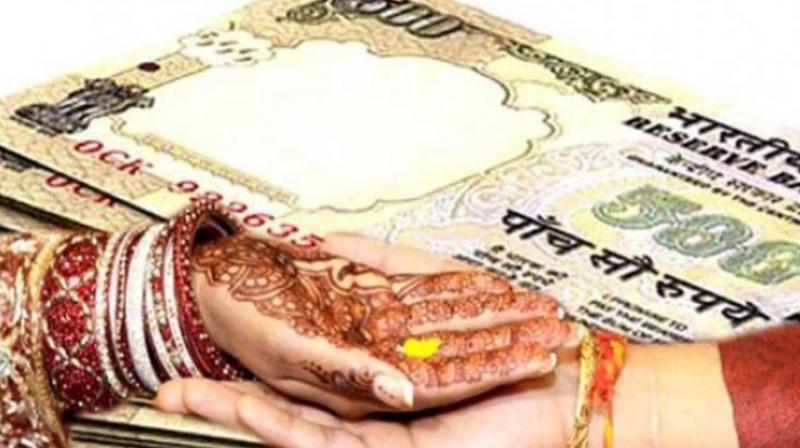Cracks in marriage throw up dowry cases
Dowry deaths in Telangana state were at 254 for 2016 as per NCRB data.

Hyderabad: Even though there are stringent laws making the taking of dowry illegal, families still indulge in this social evil, disguising the money or assets as ‘gifts’.
Judge G. Neelima at the family court in Secunderabad says, “Families term this exchange as a tradition, wherein the families voluntarily exchange gifts during wedding rituals. However, when cracks start appearing in the marriage, this gesture becomes viewed as dowry. On one side, if the groom’s family says no to any exchange of gifts, it raises suspicions as to why the family does not want to uphold the tradition and suspicions follow that there may be some fault with the groom.”
Such is the case of Divyesh Shah (name changed), 25, from Secunderabad, and his 23-year-old wife Vibhuti Sharma (name changed), whose marriage lasted for a year and a half. Divyesh claimed the marriage was not consummated and they were not compatible and wanted to part ways. They filed for divorce in July. Vibhuti complained to the police that she had been harassed for dowry by Divyesh.
Divyesh was arrested under IPC Section 498 A (dowry harassment). Vibhuti claimed that her family had given Rs 9 lakh and 20 tolas of gold as dowry.
Since dowry harassment is a non-bailable offence (though an appeal can be heard before a magistrate) Divyesh remains in jail.
Speaking on the issue, advocate G. Vijaylakshmi said, “Most such cases filed under the Dowry Prohibition Act (1969), are a result of petty issues that come between the couple, and as the case for divorce proceeds, it changes into a criminal case as in haste, women claim harassment due to dowry that was earlier understood to have been traditional and cultural sharing of gifts. Most of the cases are being filed by educated people working in the IT sector or some private company and yet despite literacy, such social evils continue to take place.”
There are genuine cases of dowry harassment too, probably much more in number than fabricated ones. The incessant demands of the husband and/or his family to get more dowry has led to some tragic consequences.
Rajendranagar sub-inspector Ch Venkatesh said, “Recently, Neelam Aggarwal, 30, was injured as she jumped from her residence because she was being harassed by her husband Srikumar Aggarwal who had recently lost his job.”
In June this year, 50-year old Mohammed Shareef was imprisoned under IPC Section 498A and fined Rs 10,000 for harassing his wife, Ashraf Unnisa, 45, for additional dowry. They were married in 1991 and the harassment began then.
In 2013, Ashraf Unnisa was thrown out of her marital home and filed a police complaint.
Psychologist Sheetal Neerackal said that this exchange of assets and finances creates a psychological acceptance of the fact that dowry is acceptable.
“Women become victims not only emotionally but psychologically. This affects much more than just their married life, but also their children’s lives, and may extend to ideas of suicide,” she said.

